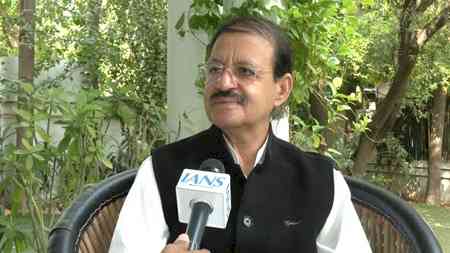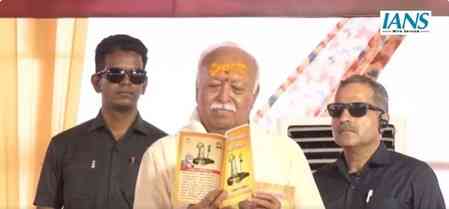BJP responsible for Bengal violence: Congress
Senior Congress leader Rashid Alvi on Saturday blamed the BJP for the recent violence in West Bengal, claiming that the unrest in Murshidabad over the Waqf (Amendment) Act was a direct consequence of the Centre’s alleged interference in religious matters.

New Delhi, April 12 (IANS) Senior Congress leader Rashid Alvi on Saturday blamed the BJP for the recent violence in West Bengal, claiming that the unrest in Murshidabad over the Waqf (Amendment) Act was a direct consequence of the Centre’s alleged interference in religious matters.
His statement comes in the wake of violent protests, arson, and clashes reported in Murshidabad district, where tensions flared over the Waqf Act, which many in the Muslim community see as an infringement on religious rights.
The BJP has accused West Bengal Chief Minister Mamata Banerjee of “supporting, inciting and encouraging” the violence in the state during protests against the Waqf Act.
“There should be no violence anywhere. But who is responsible for a peaceful protest turning violent? Will the BJP government and the Prime Minister continue to turn a deaf ear? Will they continue to hold such hatred towards Muslims that they interfere with religious matters? This law is nothing less than an intrusion into the religion of Muslims,” Rashid Alvi told IANS.
He added that whenever a community feels that its religion is under attack, it reacts.
“We have seen the consequences of such events - whether it was the attack on the Golden Temple, the controversy in Denmark over a cartoon, or the backlash against Salman Rushdie. I appeal for peace, but I hold the BJP government responsible for this unrest,” he said.
Alvi further reacted to the BJP’s allegations that the West Bengal Police remained a silent spectator during the violence.
“It is not believable that a state’s police would stand idle during such a significant incident. Yes, under BJP governments, police often act with bias. But in West Bengal, this is also about the honour of the Chief Minister. The BJP has always targeted West Bengal and its leadership. While violence cannot be justified, it is equally wrong to suppress democratic protest. People should protest, pressurise the government, and seek legal recourse, but never resort to violence,” he said.
Responding to the BJP’s warning of invoking Article 356 if the situation in Bengal deteriorates, Alvi questioned the communal framing of the issue.
“Why bring in the Hindu-Muslim narrative? These protests are not against Hindus but against the Union government, the BJP, and its leaders. This is a protest against a law imposed without consent. Hindus and Muslims have always lived in harmony. In this struggle, many Hindus also stand with their Muslim brothers. It is the BJP’s old tactic to create division and take the country towards destruction by instigating communal conflict,” he said.
When asked whether the Waqf Act protests could escalate like the events surrounding the Golden Temple, Alvi said he does not foresee such extreme consequences, but stressed that it is the government's responsibility to engage with the protesters.
“I don’t think the protests will take such a drastic turn, but in any democracy, it is the duty of the government to listen to its people. Talk to the protesters, understand their concerns, and act accordingly. We saw the farmers’ protest - they sat on roads for two years, and the government was forced to repeal the farm laws. If Muslims across the country are protesting and the Prime Minister says ‘Sabka Saath, Sabka Vishwas,’ then he must act on those words and withdraw this Act,” he concluded.
Meanwhile, West Bengal Chief Minister Mamata Banerjee on Saturday clarified her government's stance, stating that the Waqf (Amendment) Act will not be implemented in the state.
“We have made our position clear - we do not support this law. It will not be implemented in West Bengal. So what is the riot about?” she wrote in a post on social media platform X.


 IANS
IANS 








